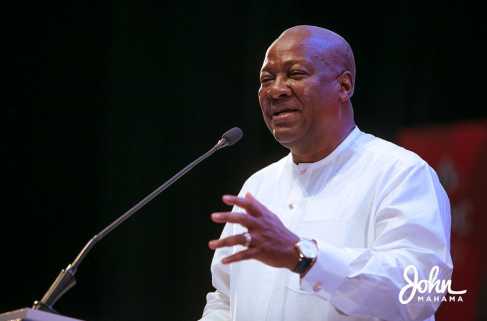Between 2012 and 2016, John Mahama led Ghana through a period marked by significant economic challenges, but also development opportunities. In the run-up to the presidential elections on December 7, 2024, it is essential to analyse the economic policies he implemented and their lasting impact on the country’s trajectory.
When he became President in 2012, Mahama inherited a rapidly growing Ghanaian economy, that was facing major challenges. One of his main objectives was to maintain this growth while tackling the structural problems that were undermining the economy. His economic strategy focused on several key areas, including macroeconomic stabilisation, economic diversification and infrastructure improvements.
One of the major challenges Mahama faced was high inflation and the unstable exchange rate of the Ghanaian cedi. To counter this, he implemented policies aimed at stabilising the currency and inflation under control. Working with the International Monetary Fund (IMF), his administration introduced austerity measures and tax reforms. Although these measures have been controversial and met with protests, they contributed to a degree of long-term economic stability.
– Mahama diversifies the Ghanaian economy –
The leader of the National Democratic Congress (NDC) also understood the importance of diversifying the Ghanaian economy, traditionally dependant on exports of raw materials, notably, cocoa and gold. To do so, he encouraged the development of the agricultural, industrial and service sectors. Having launched initiatives such as the ‘Planting for Food and Jobs’ program, he aimed to boost agricultural production while simultaneously creating jobs. These efforts helped to improve food security and reduce dependence on food imports.
– Mahama strengthens infrastructure in Ghana –
Improving infrastructure was at the heart of Mahama’s economic vision. His administration invested massively in roads, bridges and sanitation facilities. The electricity interconnection project, aimed at improving electricity supply, was also a strategic focal point. These investments not only created jobs during the construction phase, but also facilitated trade and improved access to basic services.
– The impact of Mahama’s economic policies –
Despite Mahama’s efforts during his term of office, his presidency has been marked by criticism. The energy crisis, dubbed ‘Dumsor’, led to frequent power cuts, affecting businesses and the daily lives of Ghanaians. This considerably tarnished his image and played a determining factor in the 2016 elections, in which he lost to Nana Akufo-Addo.
However, as the December 2024 elections approach, Mahama –
who is faced with the incredibly impactful legacy of his economic policies – is positioning himself as a candidate capable of revitalising Ghana’s economy, drawing on his past experience. The leader advocates an approach based on sustainability and innovation, and proves that he has learned from his previous political endeavours.
As Ghana prepares for crucial elections, an analysis of the economic policies implemented by John Dramani Mahama offers an insight into the challenges and opportunities that lie ahead. His ability to leverage his experience and adapt to the current economic realities constitutes the decisive factor that will influence his political future and the development of his compatriots.
Written by: McAlberto Lotsi
